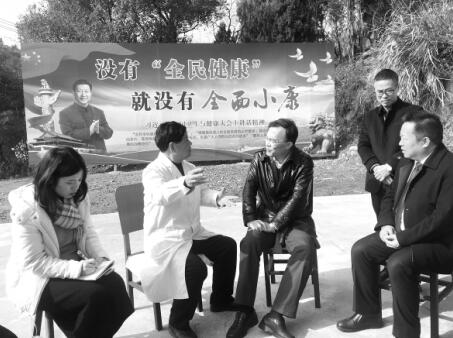On the way, I saw "the back of the news"


Recommended reading
-
Exclusive interview with Ji Weimin: let the elderly have more sense of gain, happiness and security in the development of informatization -
Editor's note: Recently, the aging transformation of Internet applications has become a hot topic of public opinion. Compared with the elderly who are not yet familiar with the Internet, the elderly Internet users who have mastered Internet application operations are also facing the traps of online rumors, online fraud, false advertising, etc. Their ability to resist risks is far lower than the young Internet users
-
Don't let the elderly netizens cross the "gap" and fall into the "trap", pay attention to the Internet "content is suitable for aging" -
With the rapid development of digitalization and intelligence in modern society, the "digital divide" between the elderly and the Internet has become a subject that must be surmounted. At the end of 2020, the Ministry of Industry and Information Technology officially issued the Special Action Plan for Adaptation to Aging and Accessibility Transformation of Internet Applications
Media recommendation
Related news
-
Blog: solve difficult problems and do practical things. 313 "village doctors" have organized a health security network for grassroots people -
10 shiny names! The list of "the most beautiful village doctors" in Anhui was released -
Xuancheng City implements the "three one batch" project to stabilize the village medical team -
Luo Chunping, a village doctor: be the health gatekeeper of villagers with heart and feelings -
Weixian County strengthens the construction of village medical team -
Village doctors take root to help the poor and ensure people's health -
Zhongshan County Achieves Full Coverage of "Village Medical Access" -
Pinggui District: 124 "village doctors" provide health and poverty alleviation -
Chongqing: This year, all village clinics have qualified village doctors -
Fan Changjiang's "Footwork, Vision, Brain and Writing Skills"
Top Ranking
-
one "Fengwang e-home" leads the development of media integration and expansion -
two People's Daily All media Production and Communication Platform Construction Project -
three Tianyan News -
four WeChat official accounts of "People's Railway" and "China Railway" -
five Ersanli Client -
six "New Gansu Cloud" county-level financial media center provincial technology platform -
seven People's Daily Health Client -
eight Capital market finance short video release and live broadcast platform -
nine National character digital publishing project big data center -
ten "Reference quick review" column
-
comment -
follow





























